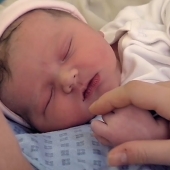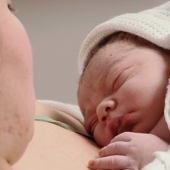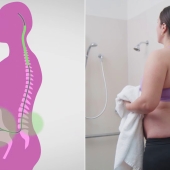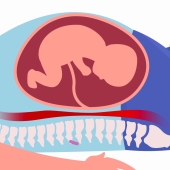
Even as the rate of strokes in Americans age 65 and older is falling, it is rising sharply among pregnant women, researchers reported Monday.
Pregnancy-related strokes are “rare and deadly and increasing,” said Dr. Lisa Leffert, the lead author of the report and the chief of obstetric anesthesia at Massachusetts General Hospital.
Increasing obesity rates among women of childbearing age; inactivity in people in their 20s, 30s and 40s; and older maternal age are contributing to the rise in hypertension and, consequently, strokes, experts say.
A 2011 study by the Centers for Disease Control and Prevention found a roughly 50 percent rise in strokes in women during pregnancy or after childbirth from the mid-1990s to 2006-07. The new study, published in the journal Obstetrics & Gynecology, documented a 61.5 percent increase from the mid-1990s to 2010-11. The study analyzed administrative data from nearly 82 million hospitalizations of pregnant women, and found about 31,000 hospitalizations for stroke over a 17-year period.
“The trend definitely holds true, and the trend is alarming,” said Dr. Vineeta Singh, an associate professor of neurology at the University of California, San Francisco, who specializes in stroke in women. “It reaffirms what stroke experts have been saying all along: Hypertension is the No. 1 risk factor for stroke, and it is preventable.”
But high blood pressure is not the only risk factor. The new study found that about two-thirds of strokes hit women who did not have hypertension.
“The unmeasurable factors that the study couldn’t address, like obesity and lack of physical activity, may also be playing a role,” said Dr. Ralph Sacco, who is chairman of neurology at the University of Miami Miller School of Medicine and was not involved in the research.
Researchers also found that the stroke rate increased 103 percent for women ages 15 to 44 who had high blood pressure during pregnancy or disorders related to hypertension, including pre-eclampsia.
“It’s very worrisome,” said Dr. Cheryl D. Bushnell, lead author of the American Heart Association’s guidelines to prevent stroke in women, published in February. She did not work on the study.
One limitation of the study is that it may be picking up on increased detection of strokes, not just rising incidence, because of the growing use of magnetic resonance imaging to find them, the study’s authors said.
Women who are thinking about getting pregnant should be counseled on the risk factors for pre-eclampsia, which include obesity, diabetes and pre-pregnancy hypertension, said Dr. Bushnell, the director of Wake Forest Baptist Health’s stroke center in Winston-Salem, N.C. And they need to “be told that preventing pre-eclampsia could help prevent a stroke.”
Many women who have high blood pressure during pregnancy do not realize they are five times more likely to have a stroke, or that certain conditions like congenital heart disease, sickle cell anemia and migraine also increased stroke risk.
And often, women do not realize they can have a stroke well after giving birth. “We used to think after delivery, women get better,” said Dr. George Saade, the director of maternal-fetal medicine at the University of Texas Medical Branch in Galveston. “Now we are seeing more of these patients who had a type of hypertension during pregnancy showing up days or weeks later with complications.”
There is growing momentum to tackle hypertension in mothers-to-be. In April, the United States Preventive Services Task Force, a government panel, recommended that women at high risk for pre-eclampsia use a daily low-dose aspirin after the first trimester.
In February, the American Heart Association said that expectant mothers with severe high blood pressure (160/110 or above) should take an appropriate blood pressure drug, and that those with moderately high blood pressure (150-159/100-109) should consider medication.
“I’m glad this study came out the same year we are making a recommendation for aggressive treatment of high blood pressure in pregnancy,” said Dr. Singh, a co-author of the guidelines from the American Heart Association.
Women who had pre-eclampsia face long-term risks, too. “Their risk of high blood pressure later in life is fourfold, and risk of stroke doubles,” Dr. Singh said.
- 338 views













